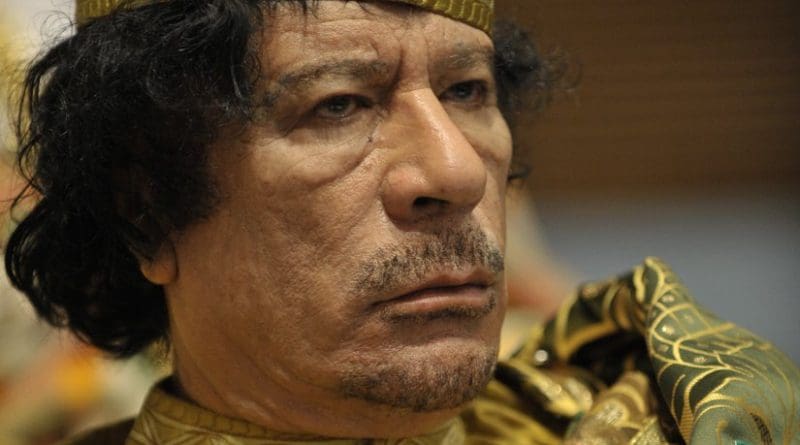Libya And The Allies: The Rebels Themselves – OpEd
By GEES
By Juan F. Carmona y Choussat
The so-called international community has begun enforcing UN Resolution 1973. While the UN authorizes all necessary measures to protect civilians it excludes an “occupation” force.
France, who led the way, in the absence of American leadership, the UK, the US and some other countries are working together to try to guarantee a no-fly zone by neutralising Libya’s defenses. It seems that while this goal is being achieved, Gaddafi loyalists remain in and around Benghazi.
While world leaders have called for Gaddafi to go, there is no room in the Resolution for the departure of the tyrant-terrorist or for a change of regime in a land, after Western dithering, he now almost entirely controls. President Obama has repeatedly stated that there shall not be a deployment of ground forces.
It is a known fact, but not necessarily widely reported, that the West has only been able to mount operation Odyssey Dawn because Gaddafi gave up all his weapons of mass destruction and plans to develop them in the wake of what happened to neighbour Saddam in 2003.
Two outcomes are possible in the light of unfolding events.
One, Gaddafi may seek a negotiated departure because of the overwhelming fire power of the West. The international criminal court moves are an encumbrance for this. Was sending a subpoena ever a plan?
A second, more probable evolution is the separation of Libya in two entities, a big one controlled by Gaddafi who may chose after a while to remain quiet in order to stop the West’s attack, and a small enclave in Benghazi in control of the rebels, who have been recognized as a legitimate government by France. In this scenario, the nations of the coalition according to Resolution 1973 have no option but to leave, while staying vigilant for the continuing enforcement of the no-fly zone.
Regime removal being therefore, as of now, out of the question, the position of the West is clearly shaped by what used to be called “liberal internationalism”, more properly identified as “progressive internationalism”.
According to this point of view the aim in Libya is for Gaddafi to stop committing war crimes. The no-fly zone is merely a way to re-establish the status-quo ante (“which is Latin for the mess we’re in”, as Reagan used to say) whereby the rebels may try again their luck at the Gaddafi forces, the West acting as a neutral arbiter of international legality.
The liberal internationalists think, as they did before finding their resolve when the rebels started to be in trouble and even though they were clamoring for outside help, that it is up to an “organic” uprising, i.e. the Libyans, and nobody else, to replace the regime. As much as the international community may wish for Gaddafi to go, it must – according to what one hesitates to call this line of thought – leave him there for the West’s duty is not to promote democracy – see the Cairo speech – but to protect the population and insure a gentleman’s battle between the warring parties. It did not work out that well in South Vietnam. We are, of course, more sophisticated now.
The West may be lucky enough to make Gaddafi go as a result of the damage on its regime by the intervention. Should that happen, liberal internationalists should not be fooled. We, not the rebels alone, would have brought about the demise of the tyrant. Should Gaddafi stay, however, to plot – and surely there is nothing against plotting in Resolution 1973 to justify another bombing – abominable crimes against his people and us, the rebels will have been defeated because of our wish to keep our hands clean. The end result of this is that Gaddafi will not be very happy with us, nor will the rebels.
It is therefore not only against our interests to stay “idly by” – indeed, a recipe for disaster, for how is a re-empowered Gaddafi to be contained? -, it is also at least morally duplicitous.
How the contemporary establishment living in its comfortable lodgings is about to turn, relying on propaganda, a decision that is immoral and dangerous for us in the default position of the West is only one more example of its power and of the pitiable state of our citizenship and civilization. It is also the very signal of weakness and self-tying-diplomacy terrorists and Islamists are waiting for to keep striking. Was this the long awaited alternative to the much criticized Bush Doctrine?

